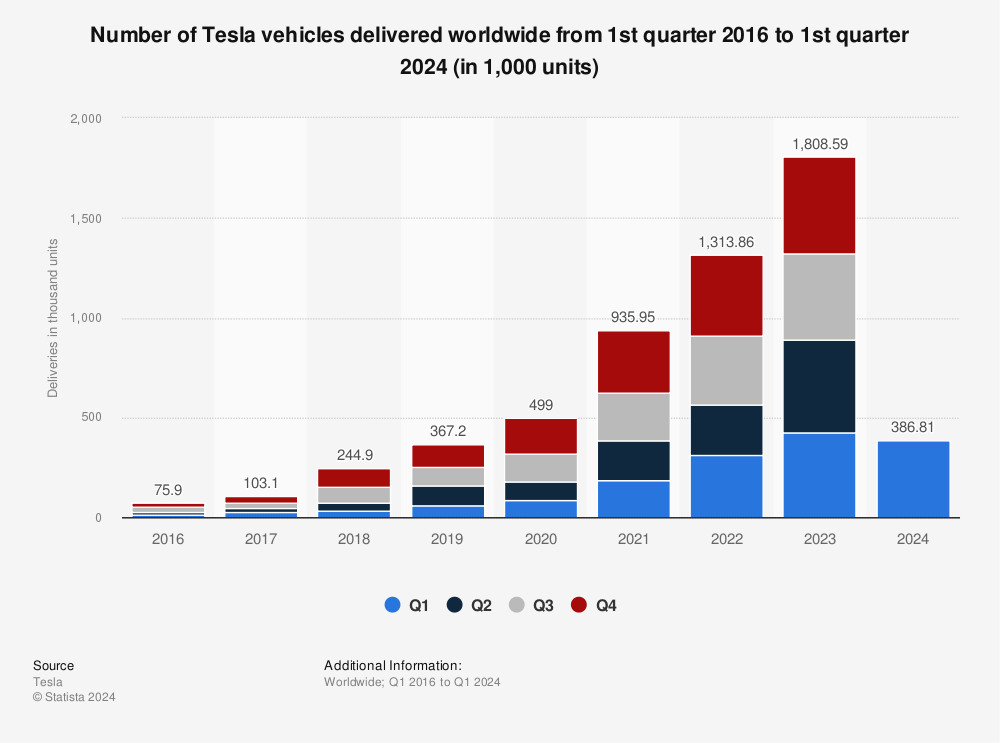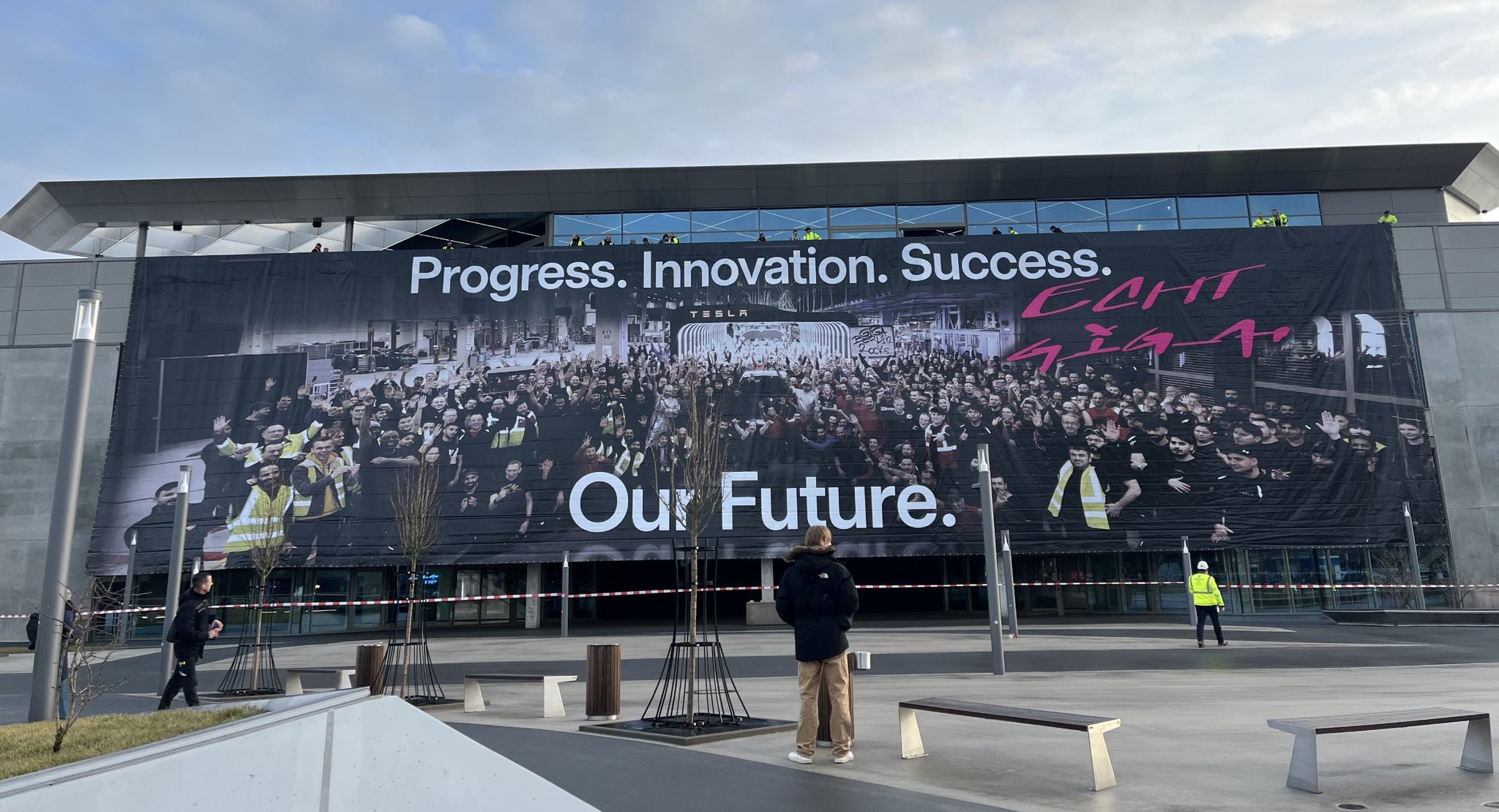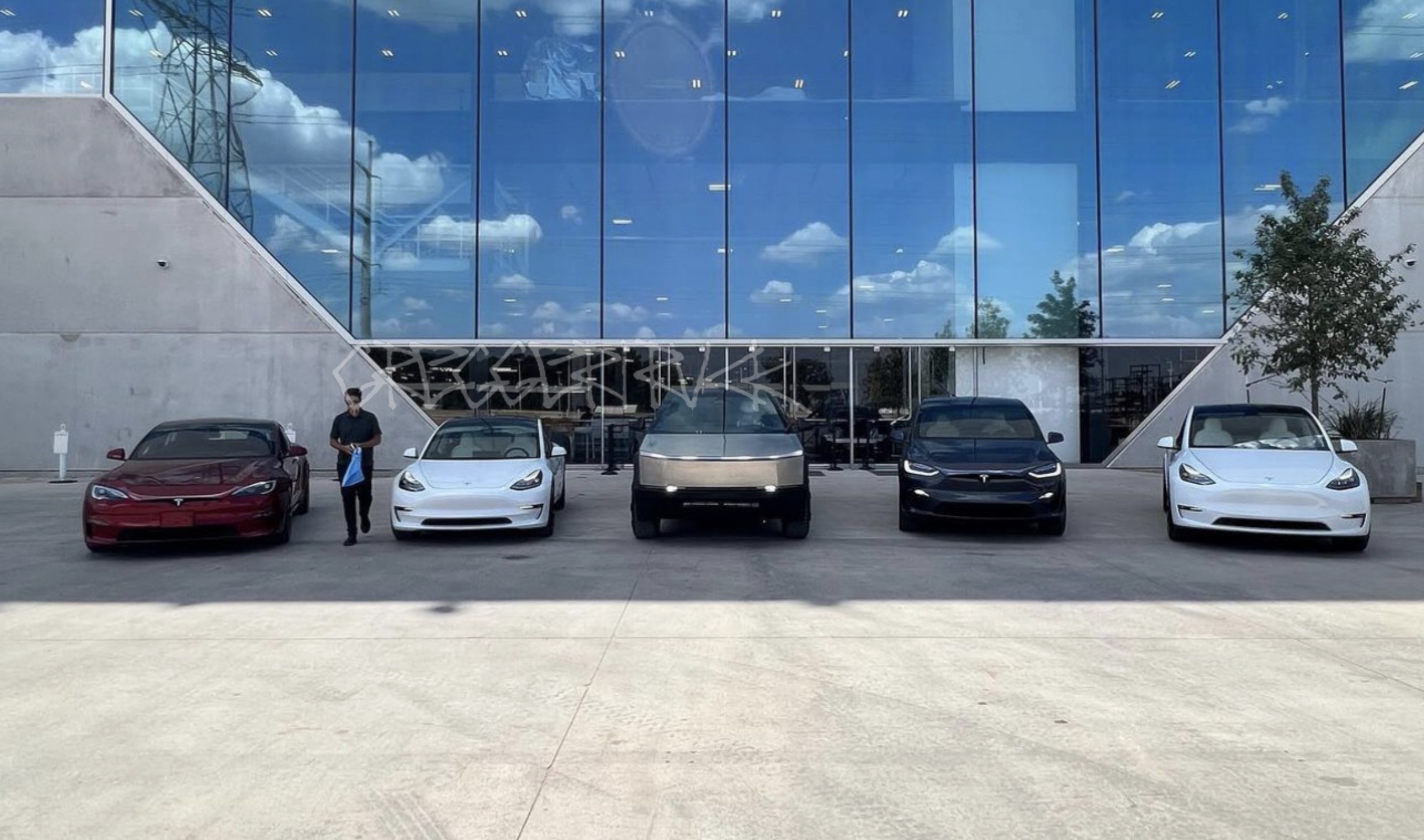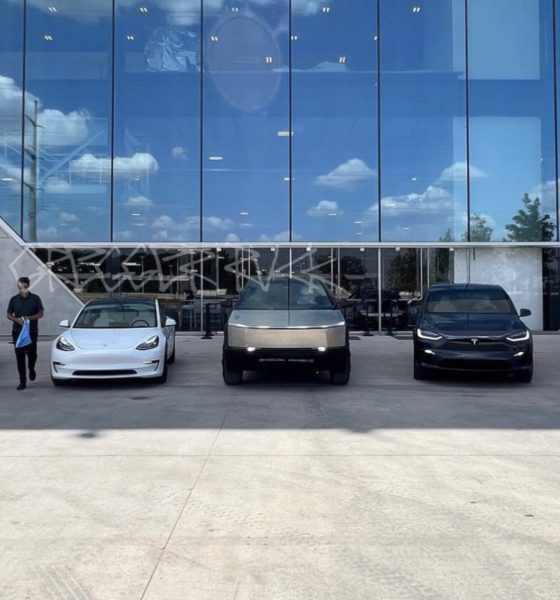Over the weekend, Tesla CEO Elon Musk conducted his highly-anticipated FSD V12 demonstration. The event was livestreamed on X, where it proceeded to garner 11.1 million views as of writing. Musk’s comments following the demo hinted at his estimate for the size of Tesla’s overall fleet in the coming years.
The drive was surprisingly uneventful, partly due to the fact that FSD V12 was already behaving much like a human driver. As Musk highlighted during the drive, FSD V12 was smooth, and it reacted to situations on the road, such as the presence of construction areas and speed bumps, without any issues. Musk only had to intervene once at a busy intersection as FSD V12 was about to run a red light.
Musk’s demonstration received quite a lot of attention on social media, with critics of the system dismissing it as proof that FSD was unsafe and supporters praising the improvements of the system. Among those who saw the importance of the demonstration was tech evangelist Robert Scoble, who described the drive as the first “first public demo of a robot that learned to move around the world by watching only videos.”
In a response to the tech evangelist’s comments, Musk stated that it is remarkable to see that the inference compute power needed for the system used in the FSD V12 demo was only about 100W on Tesla’s AI computer. The CEO noted that such a “puny amount of power is enough to achieve superhuman driving.” Musk did highlight, however, that attaining superhuman driving with AI requires billions of dollars per year and a massive fleet of vehicles.
With this in mind, Musk noted that Tesla currently has over 4 million cars on the road that is capable of training AI. That’s a substantial number, and it is very impressive considering how young the company is in the automotive sector. Nevertheless, Musk also estimated that Tesla’s fleet would be substantially larger in the future, as it would reach “roughly 10 million” in a few years.

Find more statistics at Statista
Granted, Musk has a reputation for being overly optimistic with his estimated timeframes, but it should be noted that 10 million is quite realistic. As noted by Statista, after all, Tesla’s overall sales have passed the 4.4 million mark, so if the electric vehicle maker continues to grow at its pace, a total fleet size of 10 million vehicles may indeed be within reach.
Don’t hesitate to contact us with news tips. Just send a message to simon@teslarati.com to give us a heads-up.

Elon Musk
xAI’s Grok approved for Pentagon classified systems: report
Under the agreement, Grok can be deployed in systems handling classified intelligence analysis, weapons development, and battlefield operations.

Elon Musk’s xAI has signed an agreement with the United States Department of Defense (DoD) to allow Grok to be used in classified military systems.
Previously, Anthropic’s Claude had been the only AI system approved for the most sensitive military work, but a dispute over usage safeguards has reportedly prompted the Pentagon to broaden its options, as noted in a report from Axios.
Under the agreement, Grok can be deployed in systems handling classified intelligence analysis, weapons development, and battlefield operations.
The publication reported that xAI agreed to the Pentagon’s requirement that its technology be usable for “all lawful purposes,” a standard Anthropic has reportedly resisted due to alleged ethical restrictions tied to mass surveillance and autonomous weapons use.
Defense Secretary Pete Hegseth is scheduled to meet with Anthropic CEO Dario Amodei in what sources expect to be a tense meeting, with the publication hinting that the Pentagon could designate Anthropic a “supply chain risk” if the company does not lift its safeguards.
Axios stated that replacing Claude fully might be technically challenging even if xAI or other alternative AI systems take its place. That being said, other AI systems are already in use by the DoD.
Grok already operates in the Pentagon’s unclassified systems alongside Google’s Gemini and OpenAI’s ChatGPT. Google is reportedly close to an agreement that will result in Gemini being used for classified use, while OpenAI’s progress toward classified deployment is described as slower but still feasible.
The publication noted that the Pentagon continues talks with several AI companies as it prepares for potential changes in classified AI sourcing.
Elon Musk
Elon Musk denies Starlink’s price cuts are due to Amazon Kuiper
“This has nothing to do with Kuiper, we’re just trying to make Starlink more affordable to a broader audience,” Musk wrote in a post on X.

Elon Musk has pushed back on claims that Starlink’s recent price reductions are tied to Amazon’s Kuiper project.
In a post on X, Musk responded directly to a report suggesting that Starlink was cutting prices and offering free hardware to partners ahead of a planned IPO and increased competition from Kuiper.
“This has nothing to do with Kuiper, we’re just trying to make Starlink more affordable to a broader audience,” Musk wrote in a post on X. “The lower the cost, the more Starlink can be used by people who don’t have much money, especially in the developing world.”
The speculation originated from a post summarizing a report from The Information, which ran with the headline “SpaceX’s Starlink Makes Land Grab as Amazon Threat Looms.” The report stated that SpaceX is aggressively cutting prices and giving free hardware to distribution partners, which was interpreted as a reaction to Amazon’s Kuiper’s upcoming rollout and possible IPO.
In a way, Musk’s comments could be quite accurate considering Starlink’s current scale. The constellation currently has more than 9,700 satellites in operation today, making it by far the largest satellite broadband network in operation. It has also managed to grow its user base to 10 million active customers across more than 150 countries worldwide.
Amazon’s Kuiper, by comparison, has launched approximately 211 satellites to date, as per data from SatelliteMap.Space, some of which were launched by SpaceX’s Falcon 9 rocket. Starlink surpassed that number in early January 2020, during the early buildout of its first-generation network.
Lower pricing also aligns with Starlink’s broader expansion strategy. SpaceX continues to deploy satellites at a rapid pace using Falcon 9, and future launches aboard Starship are expected to significantly accelerate the constellation’s growth. A larger network improves capacity and global coverage, which can support a broader customer base.
In that context, price reductions can be viewed as a way to match expanding supply with growing demand. Musk’s companies have historically used aggressive pricing strategies to drive adoption at scale, particularly when vertical integration allows costs to decline over time.
News
Tesla Giga Berlin makes a statement of solidarity amid IG Metall conflict
The display comes as tensions between Tesla and IG Metall continue to escalate.

Tesla Giga Berlin is sending a strong message of solidarity amid its ongoing legal dispute with German union IG Metall.
In a post on social media platform X, Giga Berlin plant manager André Thierig shared an image of the facility’s lobby covered with a large banner that reads: “Progress. Innovation. Success.” He added that the slogan reflects what the facility has stood for since Day One.
“Our lobby at Giga Berlin covered in a huge banner these days. Progress. Innovation. Success – this is what we stand for since we started production in 2022 and how we will go into our future!” Thierig wrote in his post on X.
The display comes as tensions between Tesla and IG Metall continue to escalate.
The dispute began after Tesla accused a union representative of secretly recording a works council meeting at Giga Berlin. Tesla stated that it filed a criminal complaint after the alleged incident. Police later confirmed they had seized a computer belonging to an IG Metall member as part of their investigation.
“What has happened today at Giga Berlin is truly beyond words! An external union representative from IG Metall attended a works council meeting. For unknown reasons he recorded the internal meeting and was caught in action! We obviously called police and filed a criminal complaint!” Thierig wrote on X at the time.
IG Metall denied the accusation and characterized Tesla’s move as an election tactic ahead of upcoming works council elections. The union subsequently filed a defamation complaint against Thierig. Authorities later confirmed that an investigation had been opened in connection with the matter.
Giga Berlin began production in 2022 and has since become one of Tesla’s key European manufacturing hubs, producing the Model Y, the company’s best-selling vehicle. The facility has expanded capacity over the past years despite environmental protests, labor disputes, and regulatory scrutiny.










